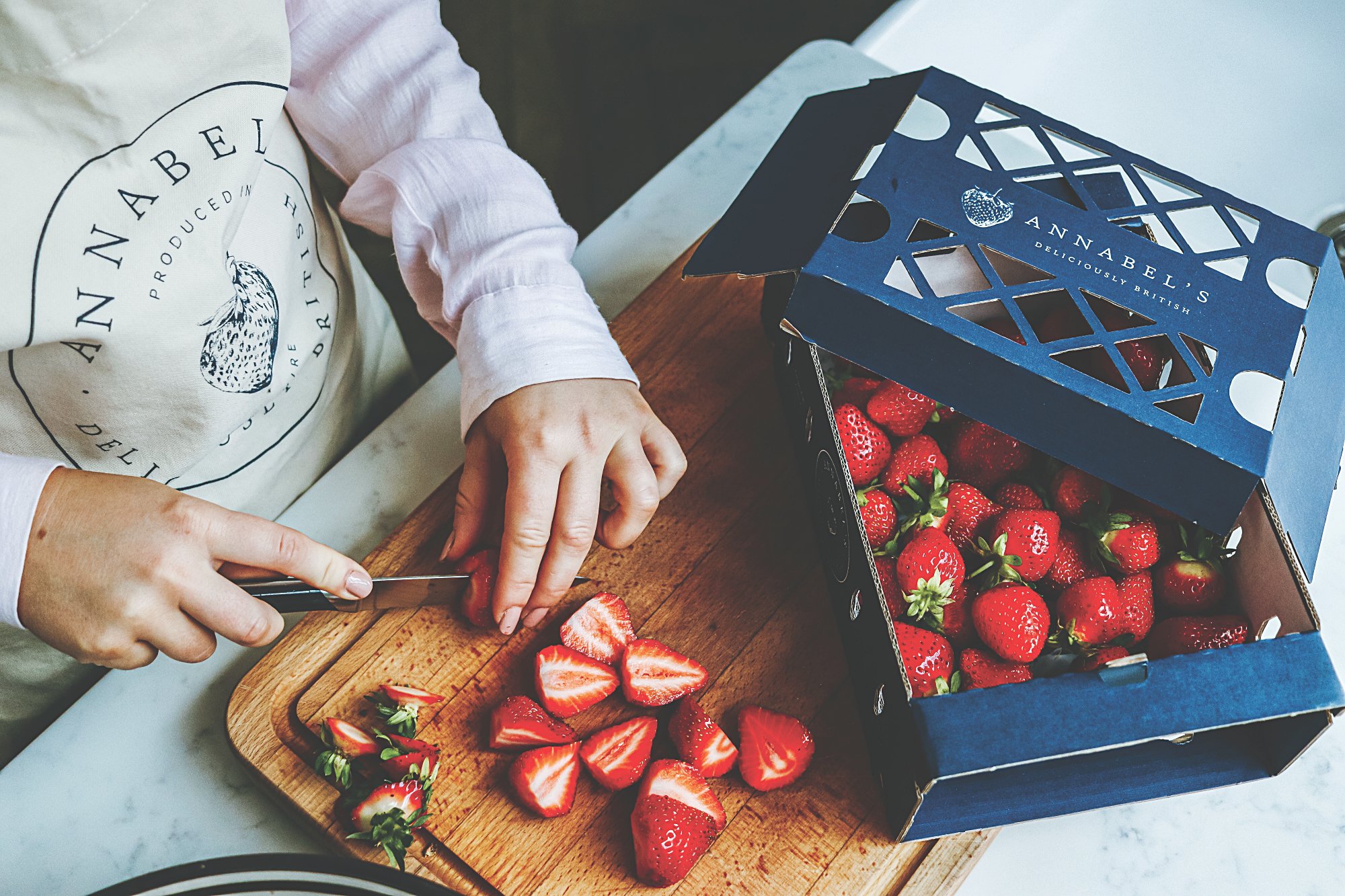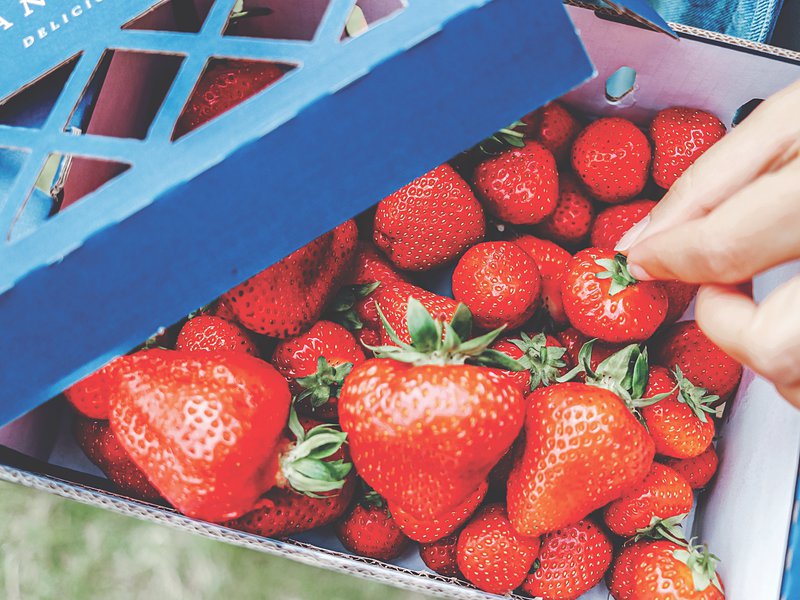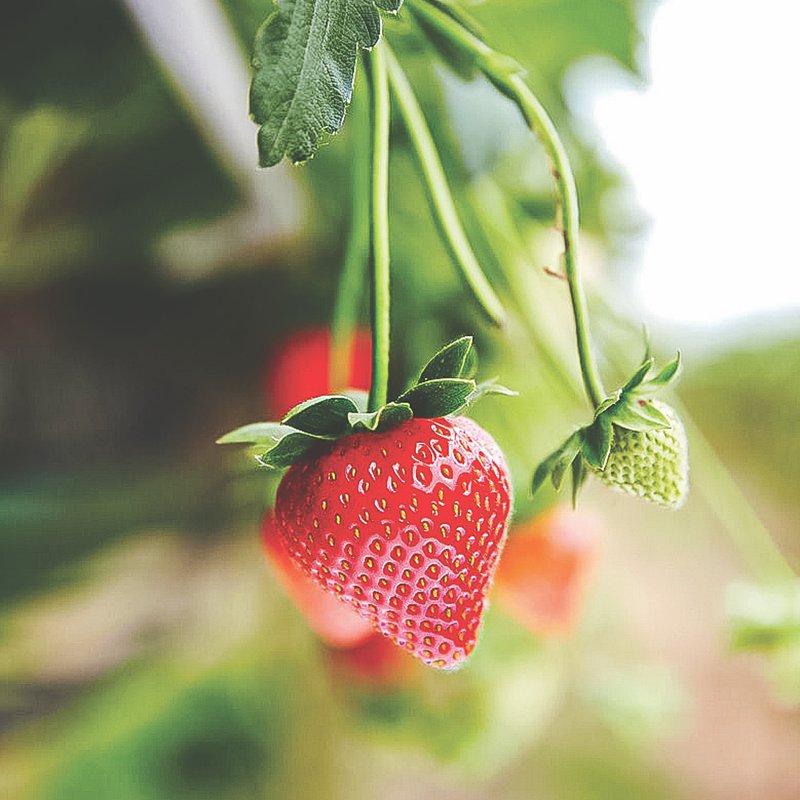Grown at Sturton Grange farm in the Yorkshire countryside, Annabel’s Deliciously British strawberries arrive in Dubai looking and tasting as good as when they were picked – the company’s promise of “field-to-fork” freshness extends all the way out to the UAE. And it’s not just the fruit itself, says founder Annabel Makin-Jones, but literally the whole package.
“We want to supply a product that people can be proud to buy, that tells our story on the box, that looks so lovely it can be given as a gift. To give or receive something fresh as a present, there’s something so great about that.”
The story goes back to her childhood and beyond – Makin-Jones comes from a long line of farmers and grew up helping her father in the fields, learning about lambing and grading potatoes. She believes that women’s role in farming still goes a bit under-recognized: “People don’t realise that we make up 28 percent of the agricultural workforce in the UK.”
After studying agri-food at university, Makin-Jones had planned to open a chain of deli-takeaways, but a season back on the farm was enough to change her course. “I was only supposed to be helping out while I got myself set up, but then I basically never left.”
Her education, experience, and passion are now paying off in multiple ways at once. What she has built with Annabel’s Deliciously British is “not farming in the traditional sense, but a brand that encompasses lots of different things”. It’s a thoroughly modern enterprise that bridges pastoral and digital, with a bright and lively online presence that allows friends and customers to keep up with the Makin-Jones family on Instagram – her young daughter Jemima and son Oscar are very much a part of it.
“We want to supply a product that people can be proud to buy, that tells our story on the box, that looks so lovely it can be given as a gift.
The latter, only seven, was recently heard to remark on the label design for their line of jams and chutneys: “Ooh mummy, the branding looks amazing.”
Items such as strawberry conserve are delicious products of a ‘zero waste policy’ that ensures a gourmet use for every premium-grade soft fruit grown at Sturton Grange.
Annabel’s also specialises in the traditional winter crop of forced rhubarb, but from spring to early autumn, strawberries are the centre of attention. They’re planted on hydroponic table tops, harvested by hand from spring to early autumn, quick-cooled in the packing house, then shipped out on refrigerated trucks.
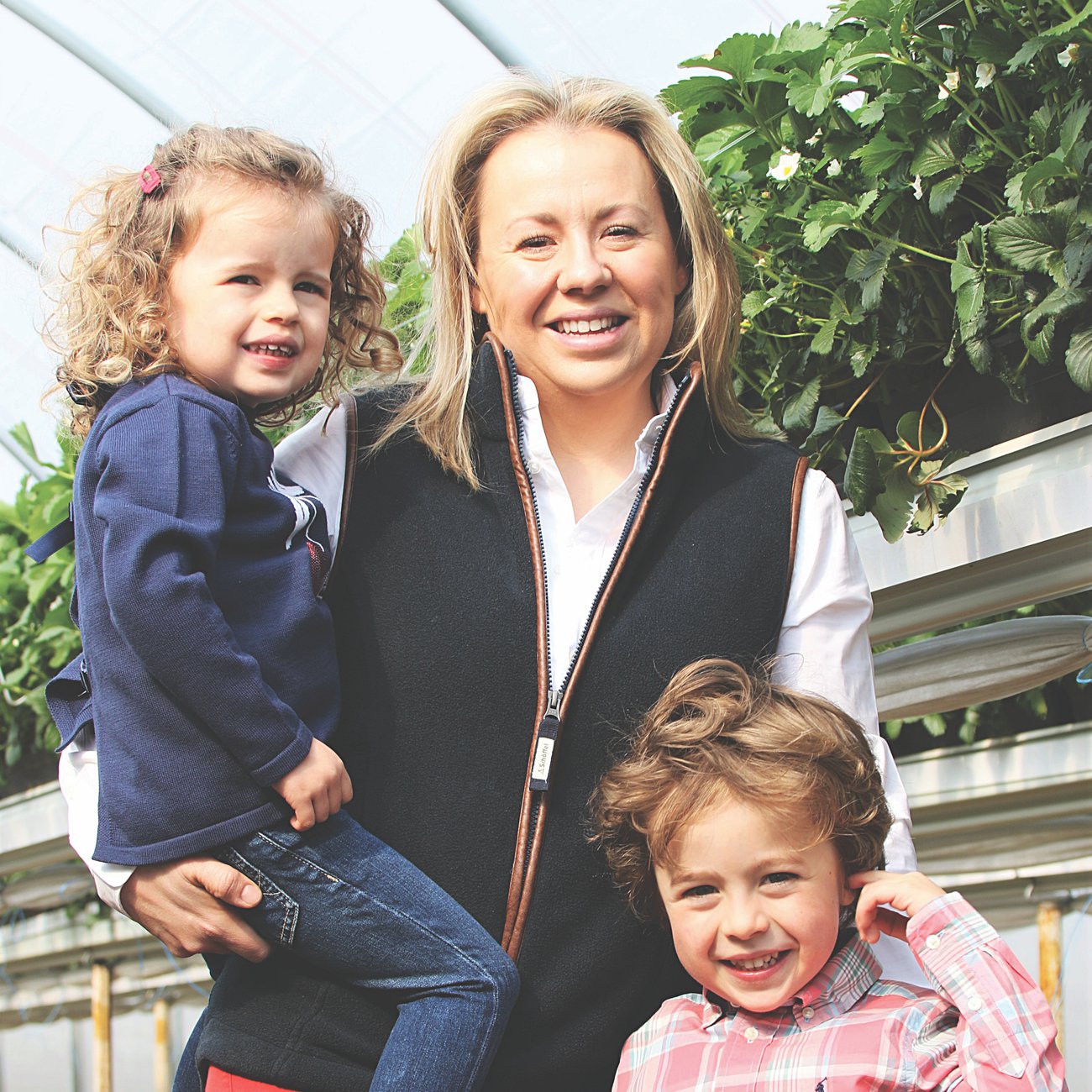
Annabel Makin-Jones
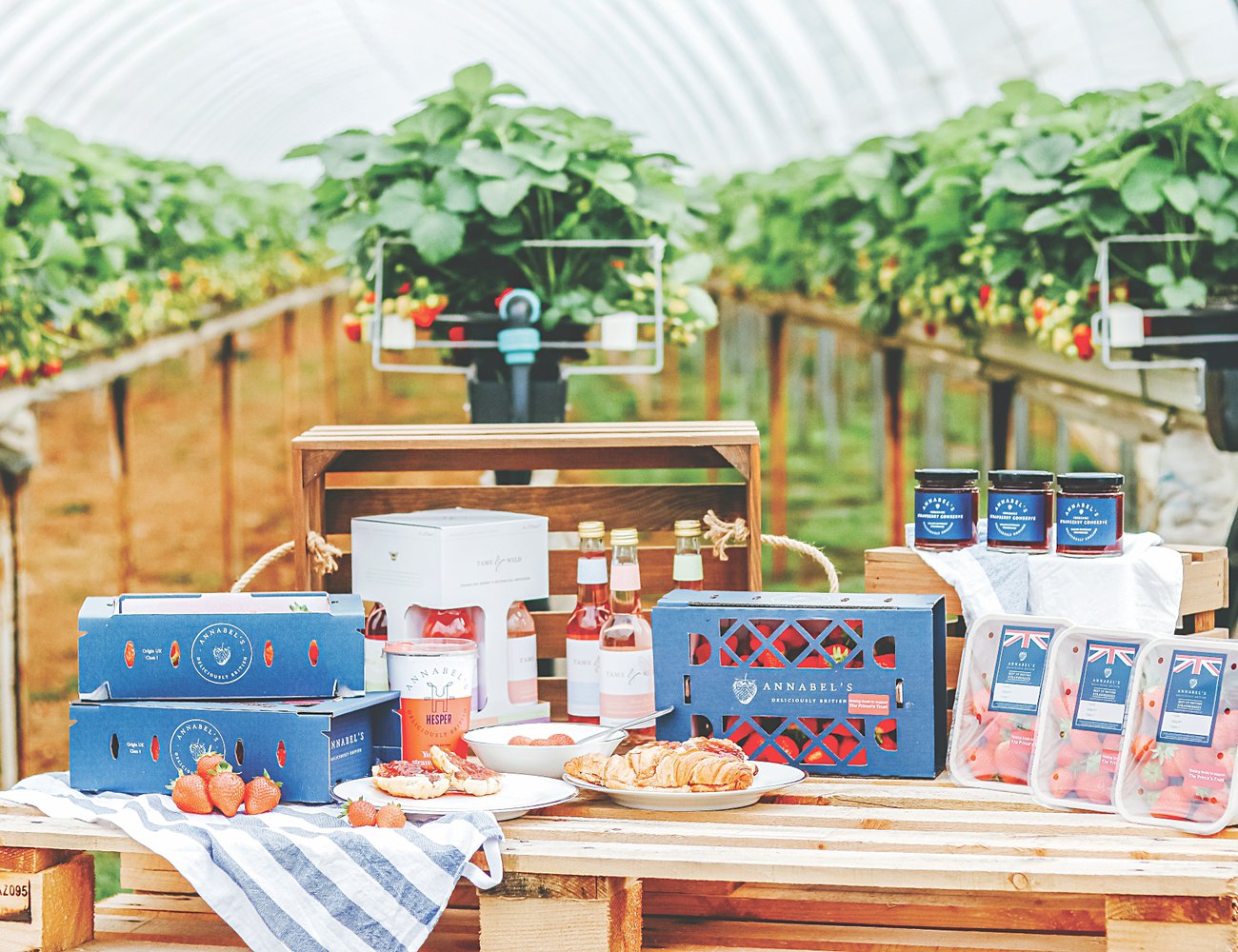
A zero waste policy at Annabel’s Deliciously British means less-than-perfect fruit are converted into preserves, chutneys or sparkling drinks
The process requires a high level of technical know-how, as well as a more innate awareness of the often unpredictable British weather. “You pray for sunshine, which gives them the sweetness, but you don’t want it too hot, because then they don’t have time to ripen properly.”
“All the worries involved are always worth it,” she says, “and of course there’s a certain pride in growing such a good product in the UK, where there’s a lot of things we can’t grow.”
